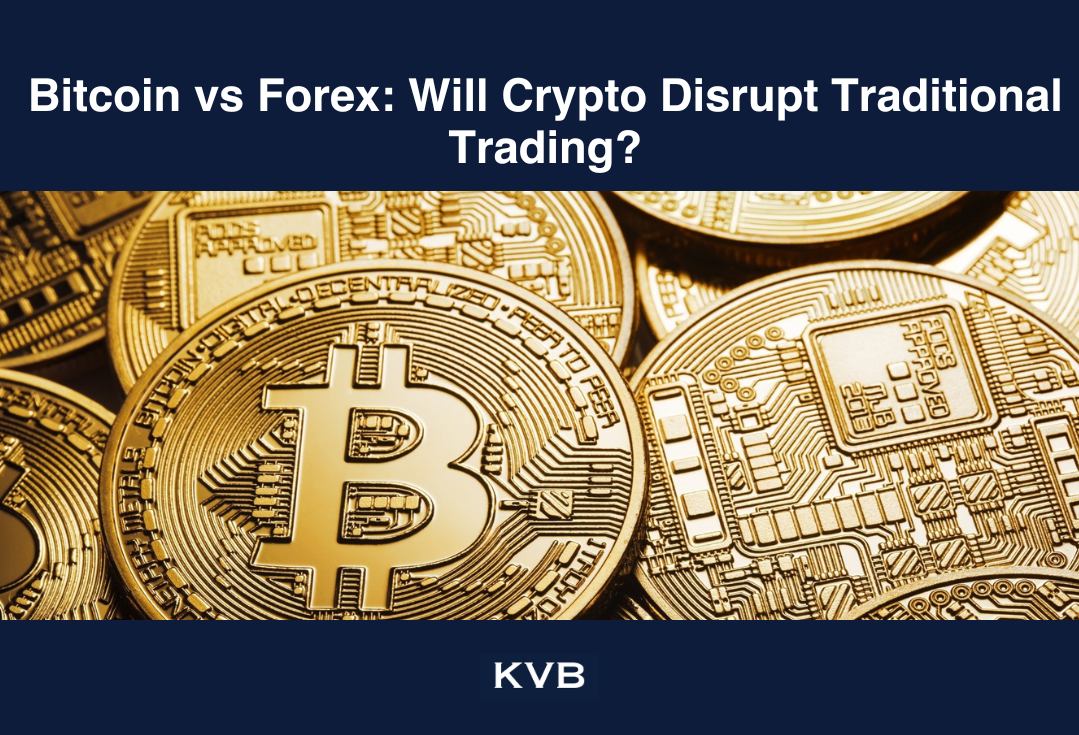


Cryptocurrency, particularly Bitcoin, has rapidly evolved from a niche technology into a prominent force in global financial markets. Initially created as a decentralized alternative to traditional fiat currencies, Bitcoin is now captivating the attention of forex traders. As it continues to gain popularity and adoption, Bitcoin presents both opportunities and challenges for those involved in traditional currency trading. This article explores Bitcoin’s growing influence in the forex market and examines how traders are adjusting their strategies to accommodate this volatile new asset.
The Rise of Bitcoin and Its Impact on Forex Markets
Bitcoin was created in 2009 by the pseudonymous Satoshi Nakamoto, with the vision of providing an alternative to centralized fiat currencies. Unlike traditional currencies, whose value is driven by central banks and government policies, Bitcoin operates independently, governed by supply and demand within a decentralized network. This key difference has made it an attractive asset for many traders and investors.
Over the past decade, Bitcoin’s price has fluctuated dramatically, but its general upward trajectory has attracted the attention of forex traders. Traditional currencies such as the U.S. Dollar (USD), Euro (EUR), and Japanese Yen (JPY) are deeply integrated into the global financial system, yet Bitcoin offers a distinct asset class that behaves differently. For forex traders, this presents both challenges in terms of incorporating Bitcoin into their strategies, as well as opportunities for profit.
Bitcoin's Role in Forex Trading
One of the key attractions of Bitcoin for forex traders is its extreme volatility. Bitcoin’s price can surge or plummet by 10-20% in a matter of hours, presenting unique opportunities for traders seeking rapid gains. In contrast, traditional currency pairs typically experience more modest fluctuations. This volatility makes Bitcoin especially appealing to day traders and swing traders who profit from short-term price movements.
Additionally, Bitcoin operates 24/7, unlike traditional forex markets that close on weekends and have set trading hours. This non-stop trading feature aligns Bitcoin’s market with the always-active forex market, allowing traders to respond to market changes at any time of day or night. The ability to trade Bitcoin at any moment also attracts forex traders looking to diversify their portfolios.
Bitcoin’s increasing acceptance by businesses and financial institutions also plays a role in its growing legitimacy. Major companies like Tesla, Microsoft, and PayPal now accept Bitcoin as a form of payment, signaling its acceptance as a viable asset in the broader financial ecosystem. As Bitcoin gains more mainstream recognition, its role in forex markets is likely to expand.
Challenges of Integrating Bitcoin into Forex Strategies
Despite its advantages, Bitcoin poses several challenges for forex traders. First, its volatility, while presenting opportunities for profit, also exposes traders to substantial risk. A sudden drop in Bitcoin’s price can wipe out profits in an instant, creating an unpredictable trading environment that traditional forex traders may not be accustomed to.
Another challenge is Bitcoin’s relatively short history in the financial markets. Traditional forex markets are supported by decades of historical data, helping traders predict future price movements with some degree of certainty. Bitcoin, however, has only been actively traded for about a decade, which limits the depth of available historical data and makes it harder to forecast price movements accurately.
Moreover, Bitcoin’s decentralized nature means it is not subject to the same regulatory oversight as fiat currencies. While regulations are slowly emerging in various countries, the lack of a comprehensive global regulatory framework creates uncertainty. This regulatory ambiguity, combined with Bitcoin’s volatility, makes the cryptocurrency susceptible to market manipulation and fraud—risks that are less prevalent in traditional forex markets.
How Forex Traders Are Adjusting Their Strategies
To successfully trade Bitcoin, forex traders are adapting their strategies to account for its volatility and unique characteristics. Technical analysis remains a popular approach, where traders use charts and indicators to predict Bitcoin’s price movements. However, given Bitcoin’s rapid price changes, traders often rely on shorter time frames and more frequent trades to capitalize on fast fluctuations.
Risk management is becoming an increasingly important consideration. Many forex traders are using stop-loss orders and other risk-limiting tools to protect themselves from large, unexpected losses. These risk management practices help mitigate the potential damage caused by Bitcoin’s unpredictable price swings.
Another common strategy is diversification. Traders are increasingly adding Bitcoin to their portfolios alongside more stable traditional currency pairs. By incorporating Bitcoin into their portfolios, traders can benefit from Bitcoin’s volatility while maintaining exposure to more stable assets, which helps balance risk and reward.
Conclusion
Bitcoin’s entry into the forex market has introduced a new dynamic for traders to navigate. While its volatility offers lucrative opportunities, it also introduces significant uncertainty. To succeed in trading Bitcoin, forex traders must adjust their strategies to account for its unpredictable nature, regulatory challenges, and shorter trading history. However, as Bitcoin continues to gain recognition and its role in the global economy expands, it is likely to become an increasingly important component of the forex market.
As digital currencies evolve, the lines between traditional forex trading and cryptocurrency trading will continue to blur. Forex traders who can adapt to this evolving landscape will be well-positioned to capitalize on the exciting possibilities that Bitcoin and other cryptocurrencies offer.
Derivative investments involve significant risks that may result in the loss of your invested capital. You are advised to carefully read and study the legality of the company, products, and trading rules before deciding to invest your money. Be responsible and accountable in your trading.
RISK WARNING IN TRADING
Transactions via margin involve leverage mechanisms, have high risks, and may not be suitable for all investors. THERE IS NO GUARANTEE OF PROFIT on your investment, so be cautious of those who promise profits in trading. It's recommended not to use funds if you're not ready to incur losses. Before deciding to trade, make sure you understand the risks involved and also consider your experience.
